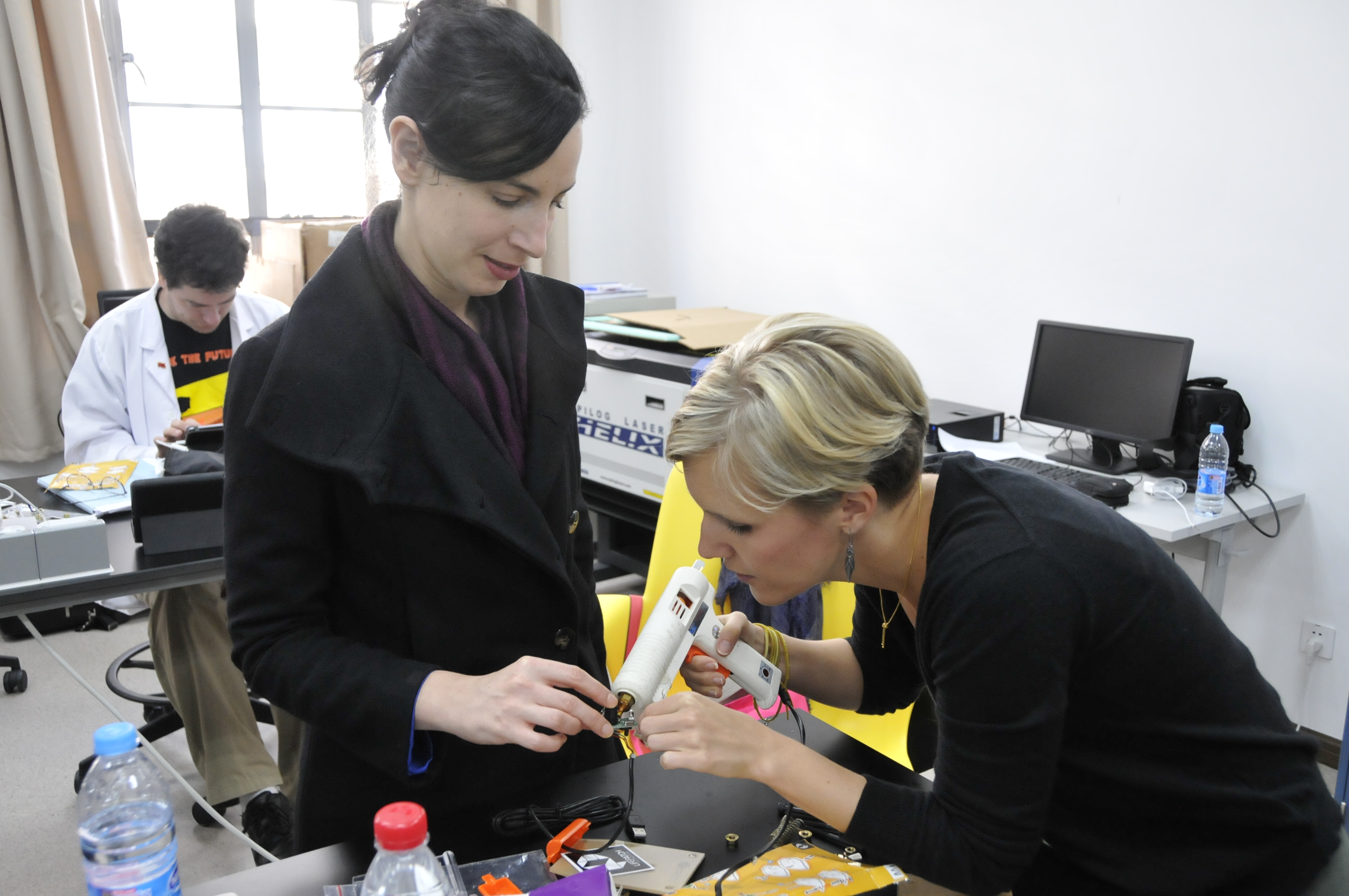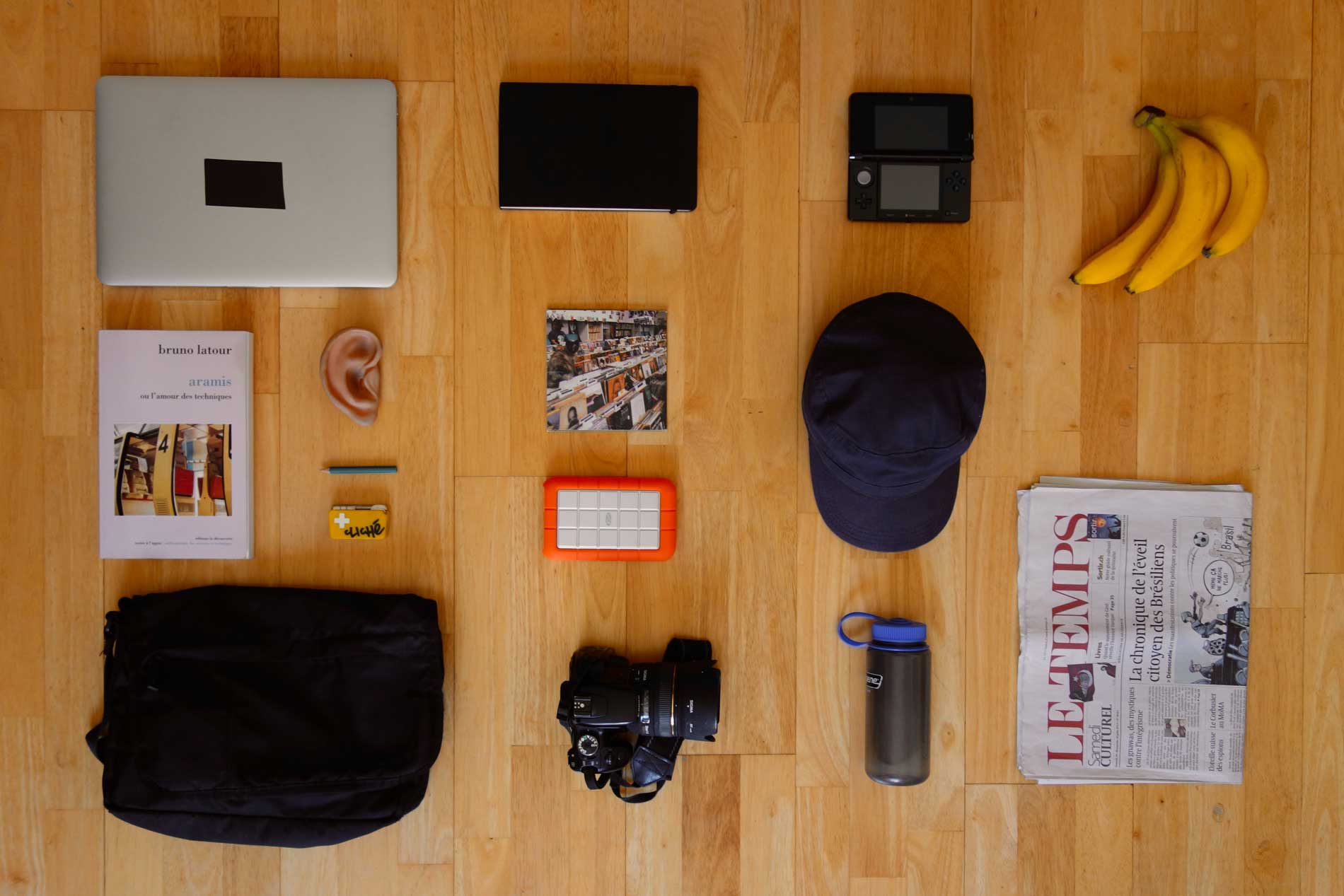Recently, I enrolled in two multi-day training workshops in the United Kingdom with the pretense of gathering ethnographic data about emergent cultures of practice surrounding new technologies. The first was an ethical hacking workshop in Manchester–where we learned how to “ethically” use malware to examine, test, and ultimately penetrate and control computer servers. The second was a class to acquire a certificate to be able to conduct commercial drone flights. These experiences revealed interesting insights into the process of professionalisation as well as contemporary ethnographic methodologies. I will briefly theorise the process of professionalisation, how this happens, why it is interesting, and why training-as-ethnography is an important place to participate in this process.
Tag Archives: hacker
anthropology + design: silvia lindtner.
[This post is part of a two-week series featuring interviews with designers reflecting on anthropology and design.]
SILVIA LINDTNER. DIY maker, hacker, and ethnographic design researcher.

ANTHROPOLOGY DESIGN.
Many disciplines and fields often work with competing notions of what counts as design, claiming authority over the term, practice, and definition. Think for instance about efforts in critical design (e.g., Dunne & Raby 2007) and the strong oppositions its practitioners often make to product design. Critical design is aimed at engaging people in critical ways with commonly used products. As Jeff and Shaowen Bardzell illuminate, critical design is positioned in opposition to affirmative design—the latter considered as “the common practice, and this practice is amoral and ultimately a dupe for capitalist ideology, while critical designers are described as moral agents who seek to change society for the better” (Bardzell & Bardzell 2013).
It is important to not shy away from the politics of design, or to brash aside such heated debates over definitions, terms, and authentic practices–many of which are legitimizing efforts of new approaches in an overly competitive market (both industry and the academy). The question is how to engage the politics of design in a way that remains open to multiple viewpoints and approaches. At numerous times in my research, I have heard people argue that the process of making and designing itself is apolitical. There is much that refutes such statements–think for instance of questions of labor when we turn towards sites of production that manufacture the technological products we use on a daily basis, or listen to debates of hackerspace members over what counts as hacking versus making versus product design. What is important here is to consider the differences that lie in designing as a mode of inquiry, a leisure practice, or central to one’s profession and livelihood.
anthropology + design.
Savage Minds welcomes guest blogger, Rachel Carmen Ceasar.
Chances are you know nothing about design.
Me neither.
So when I was introduced to designer Laura Forlano at the Society for Social Studies of Science meeting in Sunny San Diego last fall, my interest in what design could do for anthropology–and vice-versa–was piqued.
For the next two weeks, I will be running a short series that features interviews with design researchers, ethnographic hackers, and field work makers with their take on anthropology and design. For the first interview, we will be talking with design researcher and ethnographer Nicolas Nova (that’s his toolkit in the photo above).
Rachel Carmen Ceasar (@rceasara) is a doctoral candidate in the Joint Medical Anthropology Program at UC Berkeley and UC San Francisco (California, USA). She writes about the subjective and scientific stakes in exhuming mass graves from the Spanish Civil War and dictatorship in Spain today.
